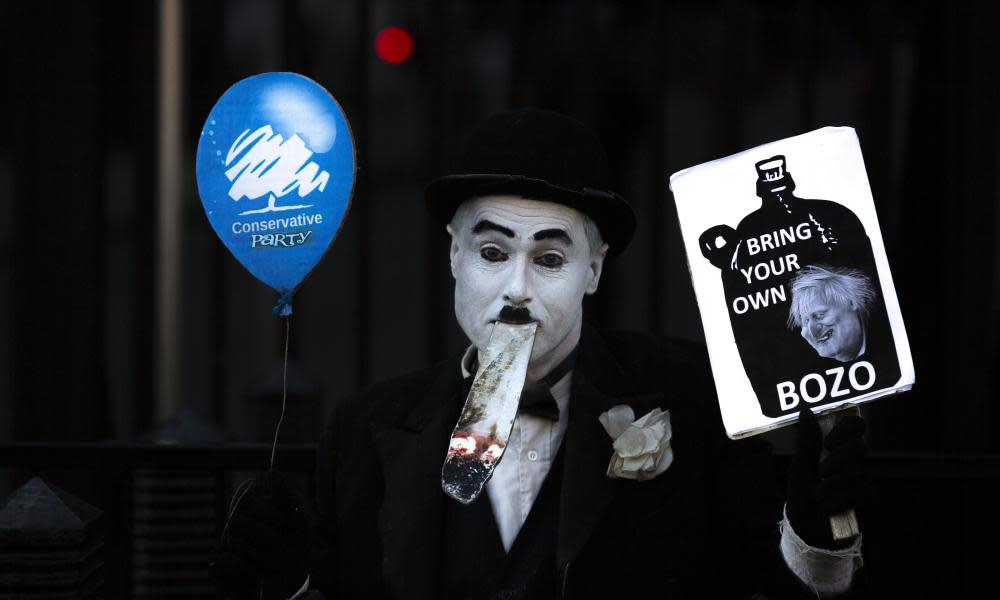The dangerous legacy of Boris Johnson’s ‘partygate’ scandal

John Harris rightly draws attention to the shocking levels of public distrust in politicians (Distrust, discord and disengagement will be the disgraceful legacy of Boris Johnson, 24 January), but there is another insidious and dangerous social effect about which little has been said: the impact on the young. As a teacher with more than 40 years’ experience, I know only too well that children and young people tend to be much more profoundly influenced by the things that they see adults in authority do as opposed to the things adults tell them to do.
I have rarely seen a political story resonate so strongly with teenagers (even those with no interest in the news) as the scandal about lockdown parties. And while the rights and wrongs of the matter may be clear to them, many will learn the lesson that if you are in trouble, the right thing to do is to lie your way out of it, that if you are suspected of wrongdoing you should let others take the blame, and that it is acceptable to ask other people to do things that you are not prepared to do yourself.
Kevin Naghten
London
• Thank you, John Harris, for your article. A lifetime of intellectual, cultural and emotional attachment to democratic norms and values makes me an unlikely supporter of hereditary monarchy or of unelected legislators. So it is an uncomfortable experience to adjust that attachment and support. I am obliged to respect the Queen, for eschewing the offered privilege of relaxed rules for a funeral, and the House of Lords, for ejecting the authoritarian additions to the policing bill. Both have modelled resistance to the principles and behaviour of the democratically elected representatives forming the UK government.
This experience will be a major part of the legacy of the current incumbent of No 10 and those he has chosen as ministers, especially those who have chosen, publicly, to defend his behaviour.
Peter Thomas
Bassenthwaite, Cumbria
• If I remember correctly, at the beginning of the pandemic the government was reluctant to impose onerous rules because of the belief that the public would not keep to them. Perhaps now we can understand why they thought that.
Leo North
Crewe, Cheshire
• At PMQs, Boris Johnson contrasted being a leader with being a lawyer. But the two postwar governments that, for good or ill, changed society most were both led by lawyers – Clement Attlee and Margaret Thatcher. Mind you, who would look to Johnson for a proper grasp of political history?
Christopher Packer
London
• Not another Downing Street exposé, I thought, seeing the phrase “chaotic orbit” with comments by Gray. But no. It’s scientist Bill Gray, not civil servant Sue Gray. Just derelict space machinery, not a rogue prime minister hurtling out of control (Out-of-control SpaceX rocket on collision course with moon, 26 January).
Patricia Baker-Cassidy
Oxford
• My father had emergency brain surgery two weeks ago. The hospital is closed to visitors, so we cannot visit. However, during one Zoom call, he responded with a thumbs up when Derby County showed signs of recovery, but with another gesture when Boris Johnson was mentioned.
Felix Bellaby
Buxton, Derbyshire

 Yahoo Movies
Yahoo Movies 
